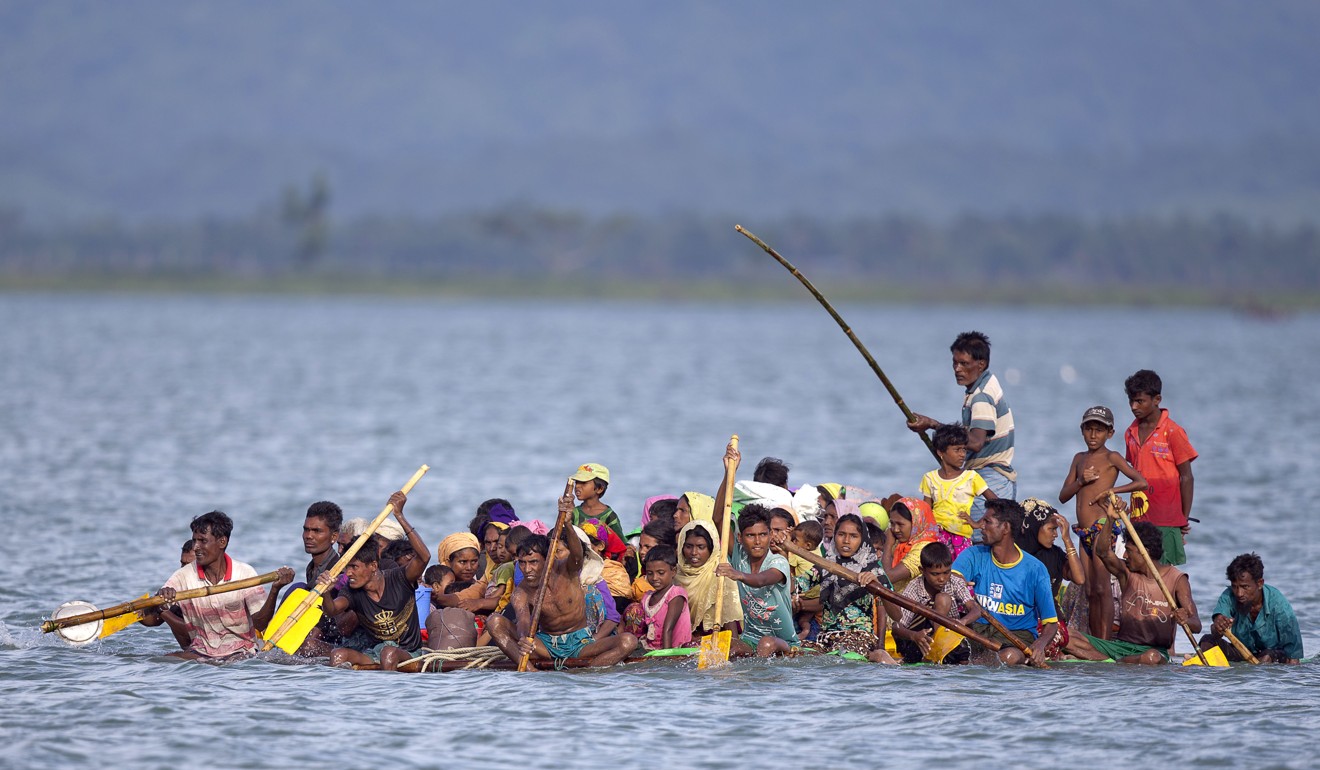
Rohingya Muslims wait for weeks on Myanmar’s beaches to be transported to Bangladeshi camps
More than 600,000 have fled to Bangladesh to find shelter in the refugee camps, the living victims of what a top UN official has called ‘ethnic cleansing’
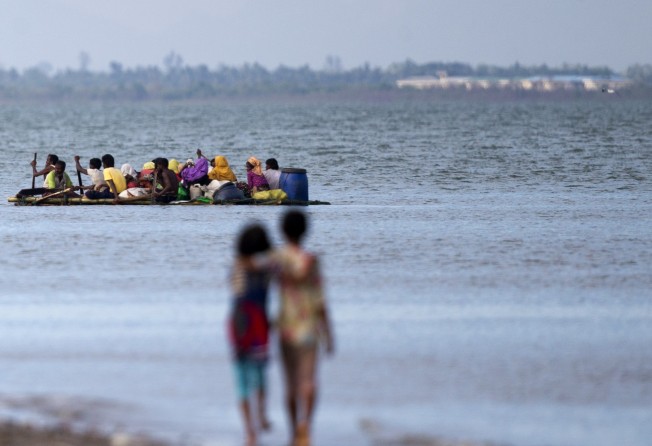
As hundreds of Rohingya Muslims camp out on sun-baked Myanmar beaches, waiting to for boats to ferry them to sanctuary in Bangladesh, some young men have resorted to crossing the mouth of the Naf river with only an empty oil drum to keep them afloat.
Having kept northern parts of Rakhine State virtually off limits since it launched a counter-insurgency operation there in late August, Myanmar’s military made a rare show of openness on Sunday by taking foreign journalists to see one of the beaches from which up to 1,000 Rohingya are trying to escape.
More than 600,000 Rohingya have fled to Bangladesh to find shelter in the refugee camps, the living victims of what a top UN official has called “ethnic cleansing”.
Myanmar, a mostly Buddhist country, has denied such accusations, insisting the military’s clearance operation was necessitated by national security concerns after Rohingya militants attacked 30 security posts in northern Rakhine on August 25.
For the Rohingya at Ah Lei Than Kyaw, some 5km south of the 2.5-mile-wide mouth of the Naf river, the beach is a kind of purgatory.

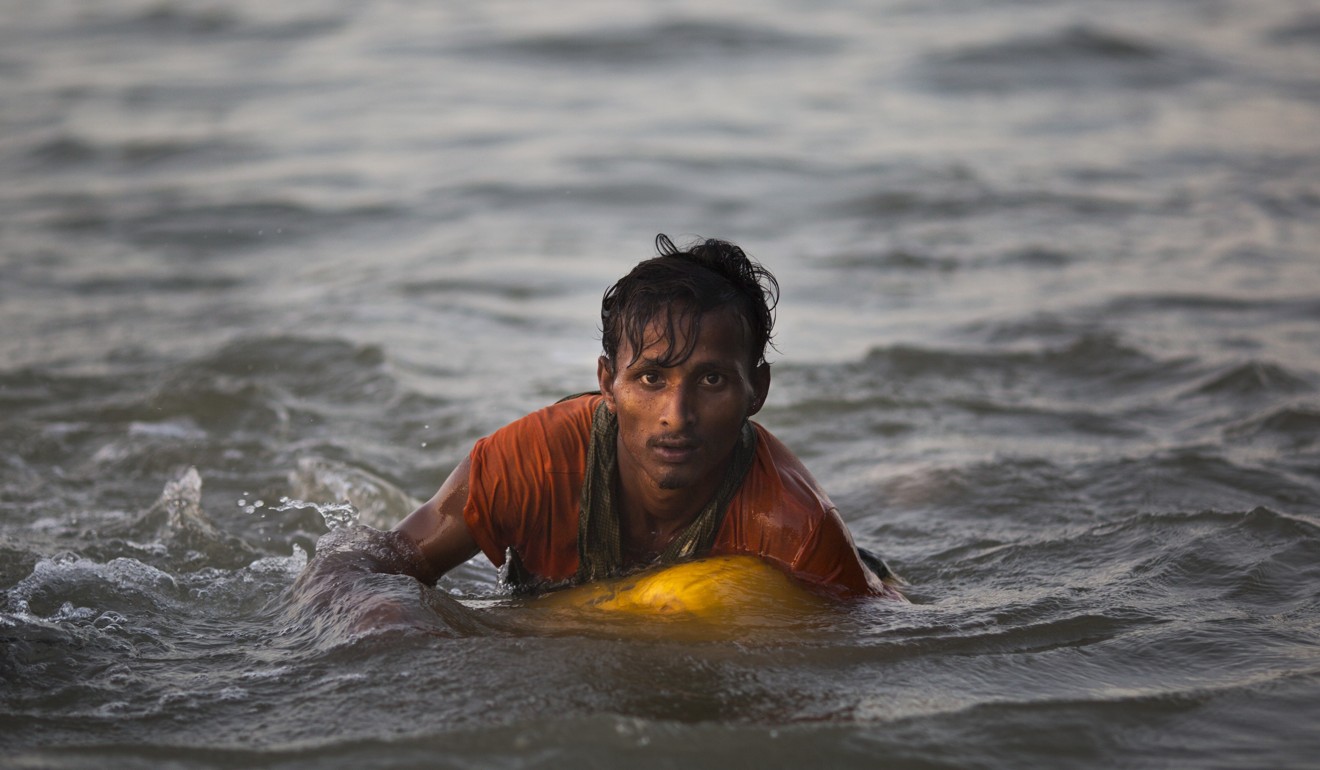
I will not go back to my village, I really hope to cross the Naf river to get to Bangladesh
Mohammad Eidnou, a 19-year-old labourer, sold his house and belongings but he and his family have spent everything on just surviving for the past two months and have no money to pay the US$50 per head fee that boatmen demand for the trip to Bangladesh.
“I don’t want to go back to my village because there is nothing for us,” Eidnou told Reuters. “We cannot survive.”
Some have been stuck there for more than a month, sweltering under the plastic sheeting used to make tents and existing on handouts provided by the Myanmar Red Cross Society.
Others came just a few days ago, a sign that the flight of the Rohingya to Bangladesh is far from over. The International Rescue Committee reckons that two-thirds of some 300,000 left in Myanmar could leave in the next couple of months.
On the beach at Ah Lei Than Kyaw, 30-year-old Sauli Mullahhe was thinking only of getting away.
Like several other men, he described how things had got so bad that he could no longer go to work or his children to school. He could not get to a pharmacy when they fell sick, or go to a market to buy food and said the authorities had even stopped Rohingya leaving the village to fish.
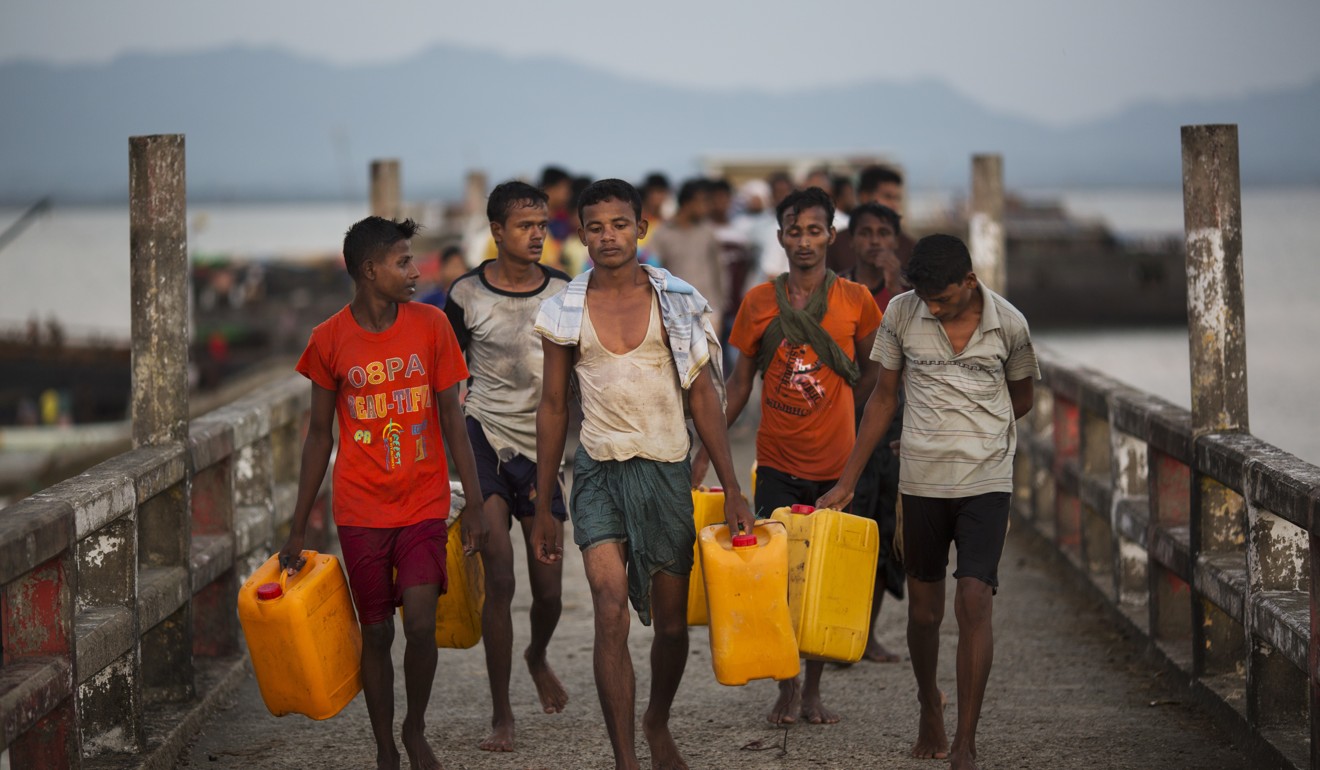
“I could not have survived any more,” Mullahhe said. “I will not go back to my village, I really hope to cross the Naf river to get to Bangladesh.”
Myint Kyaw, a police lieutenant colonel, said his officers were leaving the Rohingya on the beach alone, and were not intervening when boats came to pick them up.
“We don’t really take any action against them, because we don’t want them in trouble,” the policeman said. “They cannot go on living in the camp for very long because they can have so many health problems. That’s why we don’t interfere with them.”
Rohingya among the hundreds who reached Bangladesh on rickety boats and rafts late last week told Reuters they had left thousands of others behind in miserable conditions on the Pa Nyaung Pin Gyi beach, at the mouth of the Naf.
The military-arranged media trip did not extend that far up the coast.
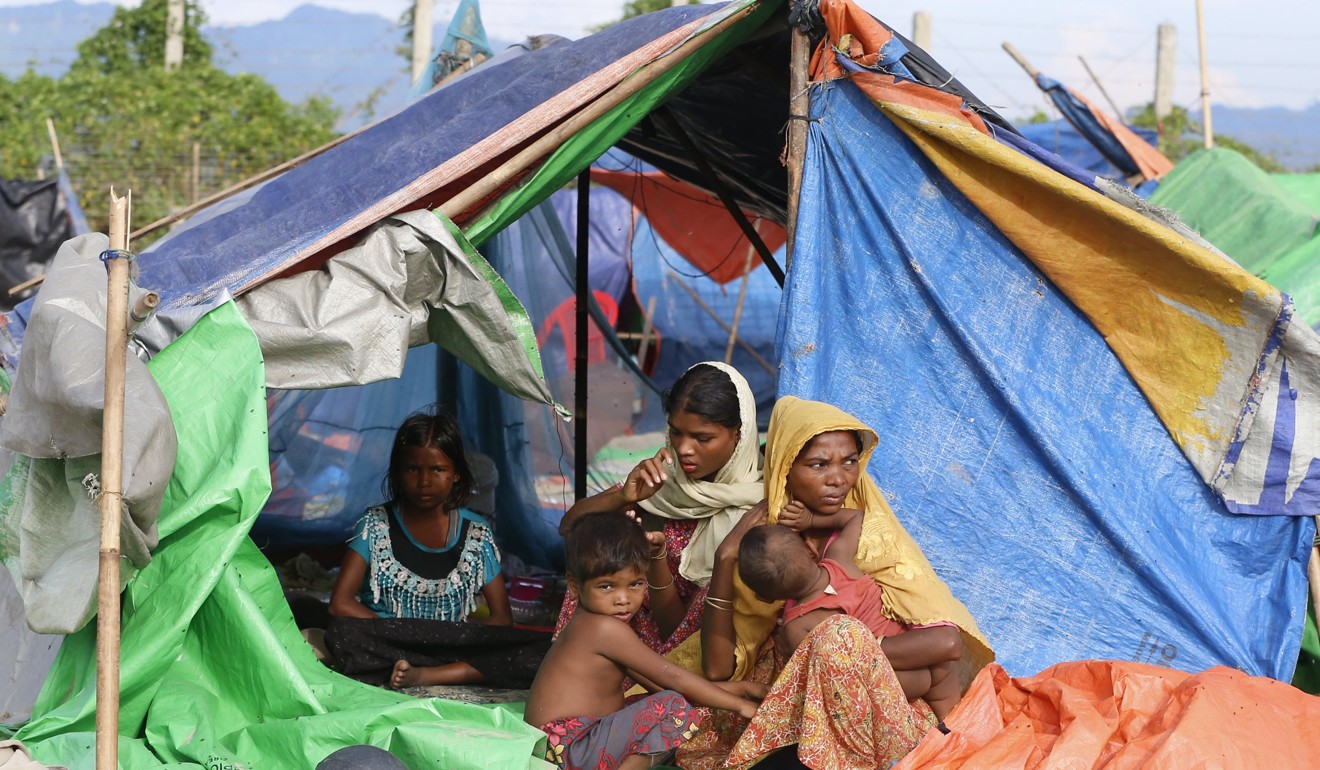
But not everyone has opted to wait on the beach. Despite not being able to swim and never before seeing the ocean, Nabi Hussain, 13, joined other young Rohingya men in using empty cooking oil drums to float across the Naf river to Bangladesh.
In just a week, more than three dozen boys and young men have braved the journey and washed up ashore in Shah Porir Dwip, a fishing town and cattle trade spot.
We had a lot of suffering, so we thought drowning in the water was a better option
“I was so scared of dying,” said Nabi. “I thought it was going to be my last day.”
Nabi’s parents did not want him to go, after one of his older brothers had made the same trip and his fate remains unknown. They knew the strong currents could carry Nabi into the open ocean.
Eventually, they agreed on the condition that he not go alone. So on the afternoon of November 3, Nabi joined a group of 23 other young men, and his family came to see him off.
Kamal Hussain, 18, who also swam to Bangladesh with an oil drum, recalled how he was desperate to escape Myanmar.
“We had a lot of suffering, so we thought drowning in the water was a better option,” he said.
Many of the Rohingya living in the camps in Cox’s Bazar, on the Bangladesh side of the Naf river, have recounted how their relatives were raped and murdered as they ran from villages set ablaze by Myanmar soldiers.
Aung San Suu Kyi, the de facto leader of Myanmar’s less than two-year-old civilian government, has said any allegations of atrocities need substantiating and should be investigated.
Under Myanmar’s transition to democracy, civilians still have to share power with the generals who ruled the country for nearly half a century, and Suu Kyi has no say over what the military does.
She is currently on a mission explaining how Myanmar is working to stem the crisis to leaders of other Southeast Asian countries at a regional summit in Manila.
On Wednesday, US Secretary of State Rex Tillerson will visit Myanmar for talks with the country’s leadership, while senators back in Washington press for economic and travel sanctions against the military and its business interests.
Suu Kyi has said preparations are being made for Rohingya to return, so long as they can prove they were residents.
Additional reporting by Associated Press